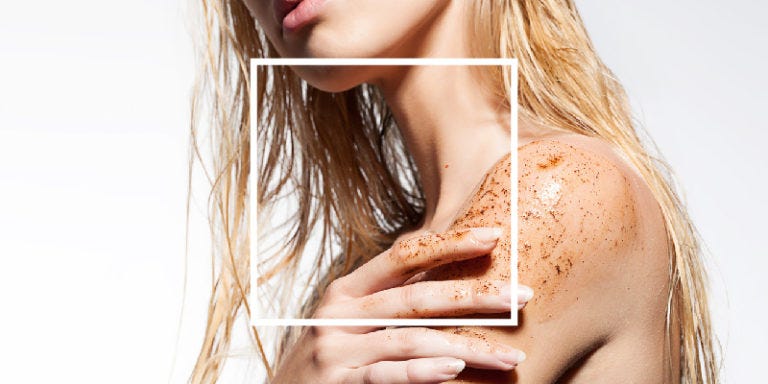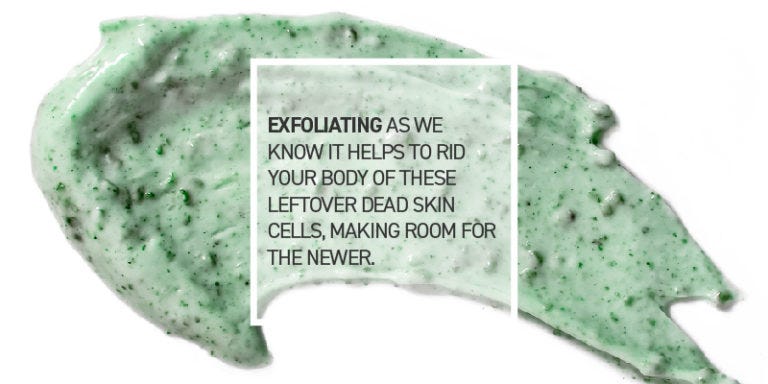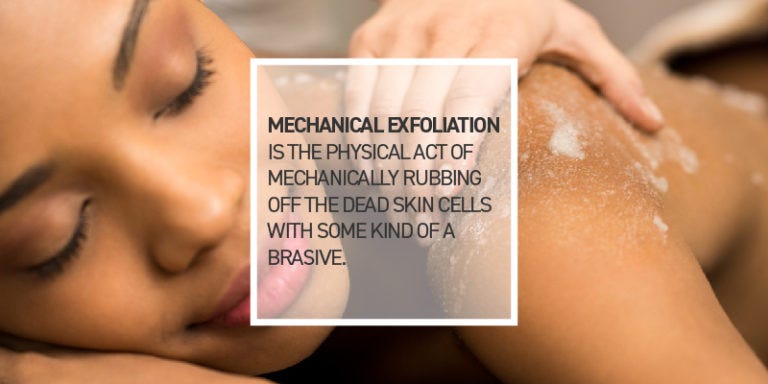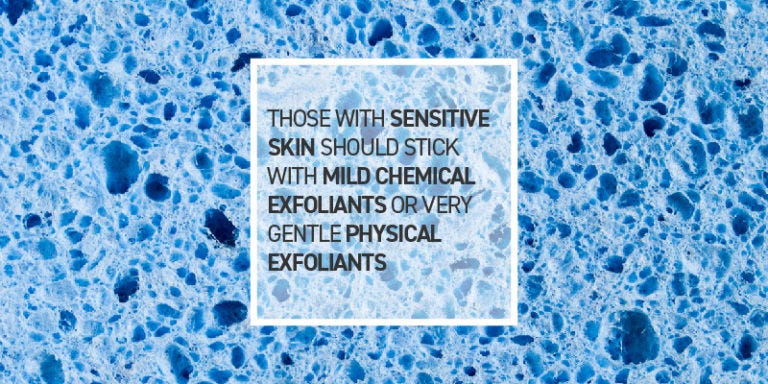Skincare Tips from MDSUN Skin Care®

Exfoliation sounds like a topic not suitable to be discussed at the dinner table.
I mean, according to the American Academy of Dermatology, it’s defined as the process of removing dead skin cells from the outer layer of your skin. Gross. Like I said, not exactly dinner table conversation, but still a conversation worth having- especially for your skin’s sake.
In reality, your skin is constantly replenishing itself and replacing old, worn-out dead skin cells with new, fresh, healthy ones. Exfoliation is technically something that your body does quite naturally, or at least it should. Sometimes what happens though, is you wind up with layers and layers of dead skin left clinging on, giving you a dry and dull appearance.
So, when and why should you step in help this process along?
Why Exfoliate?

Exfoliating as we know it helps to rid your body of these leftover dead skin cells, making room for the newer, healthier, brighter skin underneath. This is especially helpful in the upcoming winter months when cold outside temperatures coupled with low humidity levels in the air have a negative effect on the health of your skin.
One particular dermatologist is an advocate of utilizing exfoliation techniques to help cure acne. If your skin is not properly exfoliated, the acne treatment products may not be able to penetrate deeply enough into the skin to do their job. Board-certified dermatologist Gary Goldfaden, M.D., states that when you exfoliate, you’re removing the top-most layer of skin, allowing for topical skin treatments to sink deep below the surface. In addition, clogged or blocked pores can lead to acne, so exfoliating can help to open pores so that the skin is able to breathe and release the trapped oils.
Added benefits of exfoliation include helping to stimulate collagen production and act as an effective aid at reviving aging skin. As we age, cellular turnover slows down and cells begin to pile up unevenly on the skin’s surface, creating a dry, rough, or dull appearance. Aiding your body in removing those clingy cells can reveal the younger, fresher cells waiting below.
If your skin is looking a bit lackluster, exfoliating can help revive your countenance.
Types of Exfoliation

Aside from your body’s natural processes, there are two main types of exfoliation: mechanical and chemical.
Mechanical Exfoliation is the physical act of mechanically rubbing off the dead skin cells with some kind of abrasive. This could include a salt or sugar scrub, coffee grounds, manual skin brushing, or the use of a microdermabrasion machine. Typically, it’s best to steer clear of anything that could cause small tears in your skin, especially on your face. Opt for smaller, round, gentle abrasives.
Chemical Exfoliation utilizes acids to dissolve the “glue” that is holding the top layers of skin cells together. Before you panic, while envisioning hydrochloric acid melting someone’s skin in a horror film, many chemical peels are very gentle on the skin. Enzymes (such as fruit enzymes), alpha-hydroxy acids (AHAs), or beta-hydroxy acids (BHAs) go to work here. When you go to your aesthetician for a facial peel, you are receiving a form of chemical exfoliation.
How to Properly Exfoliate
While there’s no direct answer for how often you should be exfoliating, typically one to three times per week is sufficient for most skin types. In order to help you choose the best and most effective method, it’s important to know and understand your skin type.
Those with sensitive skin should stick with mild chemical exfoliants or very gentle physical exfoliants like the Japanese konjac sponge. You’ll want to steer clear of prescription creams, chemical peels, or products containing retinoids or benzoyl peroxide.
Those with thicker, oily skin can usually withstand stronger chemical treatments or more abrasive physical exfoliants.
If you have inflammatory acne, rosacea, or hypersensitive skin, you should have a conversation with your dermatologist before attempting any exfoliation regimen, as some methods may make these skin types or conditions worse.
When using a scrub, apply gently and massage the product in using small, circular motions according to your product recommendations. Be careful not to scrub too hard. Rinse thoroughly with warm water.
If you’re opting for an OTC chemical route, read the ingredients label carefully. Choose a chemical product with a low acid concentration: no higher than 10% for glycolic acid or two percent for salicylic acid.
One Exfoliation Product That Stands Out

MDSUN Skin Exfoliation Pads can exfoliate the skin without harsh side effects. In a two-tier approach, they’re able to help unclog pores, minimize breakouts, improve skin tone, and refine skin. The first layer of ingredients is made up of several acids and essential vitamins to exfoliate while hydrating the skin. The second layer is a powerful blend of antioxidants and anti-inflammatory ingredients designed to reduce and control redness, inflammation, and irritation, as well as deeply moisturize.
Always Moisturize After Exfoliating
Whatever method you choose, it is imperative to moisturize well after exfoliating. Exfoliating strips the skin of its last protective outer layer, drying it out more than what typically happens during normal cleansing. A soothing moisturizer immediately afterward is the best follow-up.
A Word of Caution About Exfoliating
According to the American Academy of Dermatology, scrubbing with the wrong products, using the wrong methods, or exfoliating too often can damage your skin and even cause you to break out.
If you have darker skin or are prone to dark spots after burns, acne breakouts, or bug bites you should avoid strong chemical or mechanical exfoliation, as this can result in making dark spots on the skin worse.
Exfoliation may aggravate other skin conditions like herpes simplex, molluscum contagiosum, and warts. These conditions are often accompanied by raised, fluid-filled bumps that could open and become infected.
Skin Care Tips From MDSUN Skin Care®
Please Visit Our Official Website - MDSUN Skin Care




Comments
Post a Comment